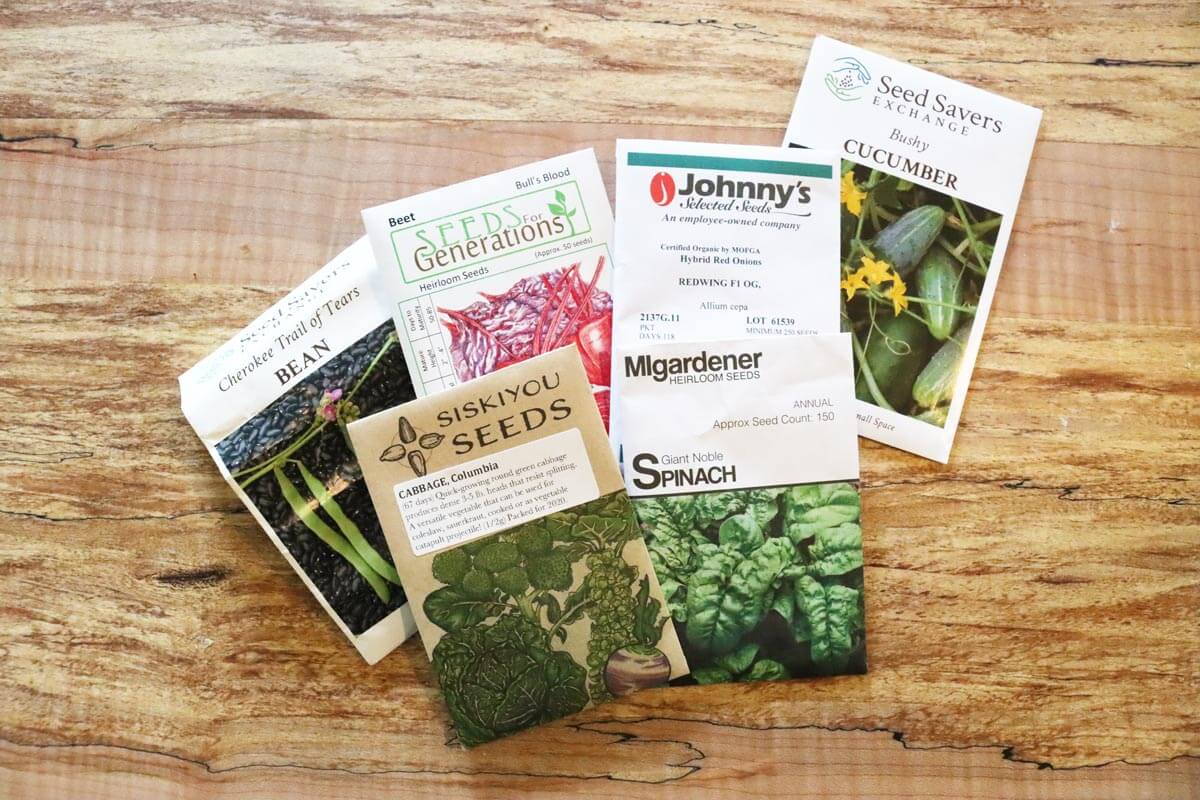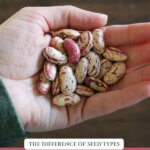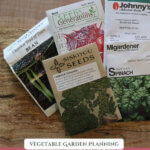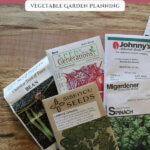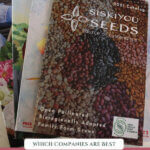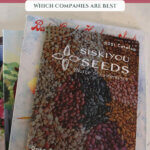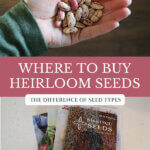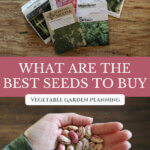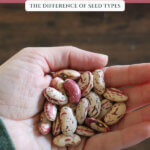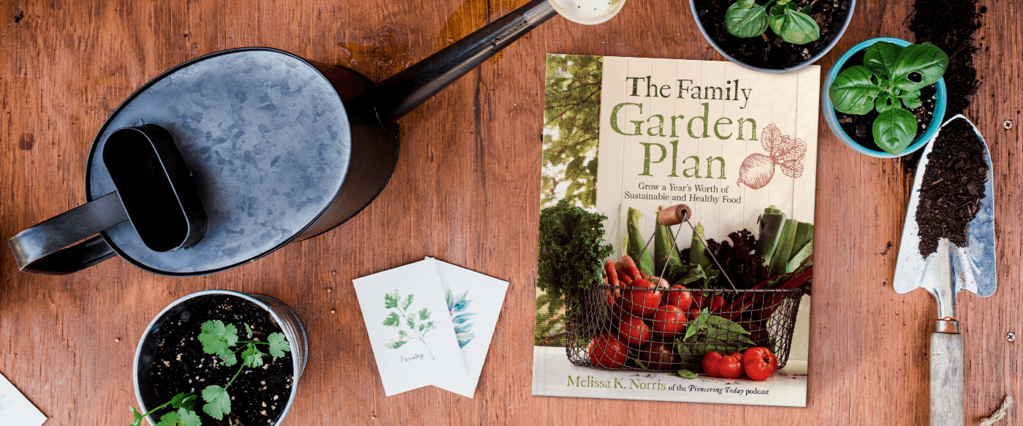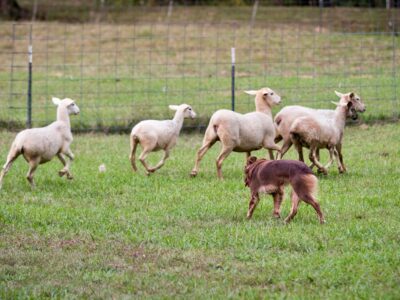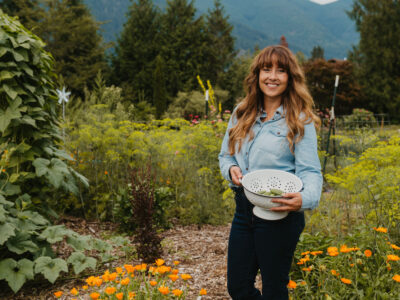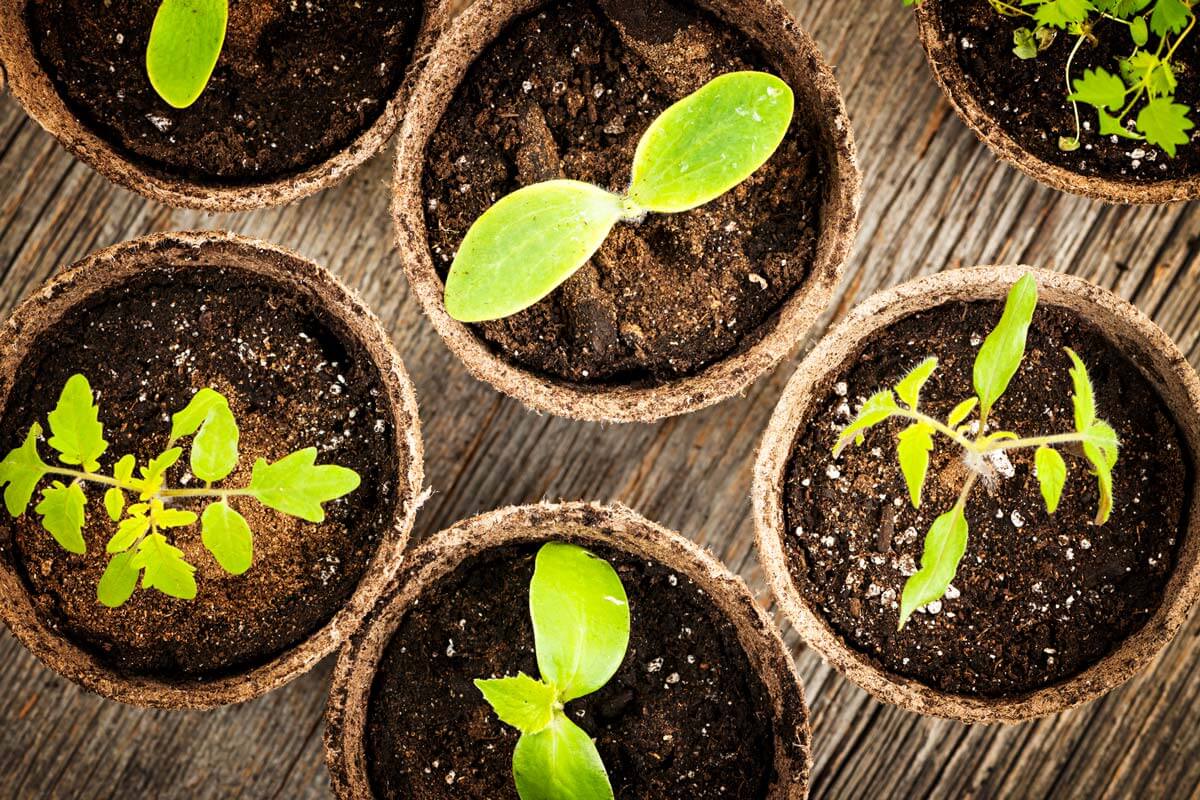Wondering where to buy heirloom seeds? Let's take a deep dive into the best heirloom seed companies, what to look for, and my tips for buying seeds now.
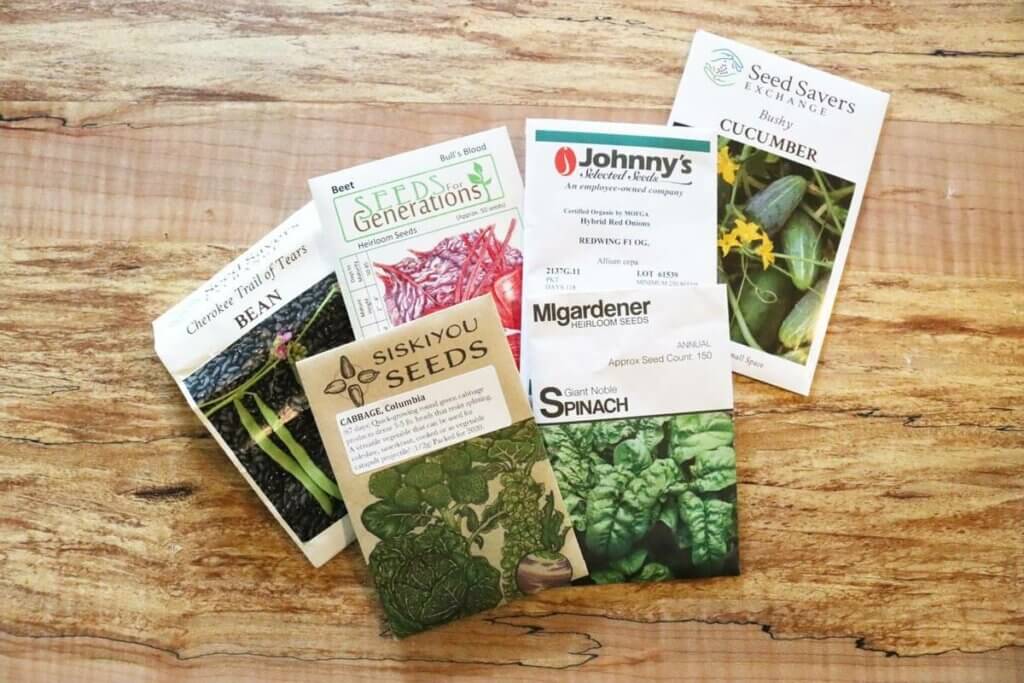
In this episode of the Pioneering Today Podcast, I'm covering where to buy heirloom seeds. If you want to know the differences between GMO, Hybrid and F1 Hybrid seeds, read this post.
As many of us are planning out our gardens in winter, figuring out what plants we'll be starting from seed, which plants we'll be starting indoors, and ordering the seeds and supplies we need, this is all information you're going to want to have in your back pocket.
If you've signed up for my free 5 Day Best Garden Planning Challenge, then you already have a lot of this done. If you haven't signed up, it's not too late! Head on over and get all the freebies, worksheets, and videos so that you have your absolute best garden plan in place for this year.
Listen in to the full podcast, Episode #228 Where to Buy Heirloom Seeds – Heirloom, Hybrid & GMO Differences of the Pioneering Today Podcast, where we don’t just inspire you, but give you the clear steps to create the homegrown garden, pantry, kitchen and life you want for your family and homestead.
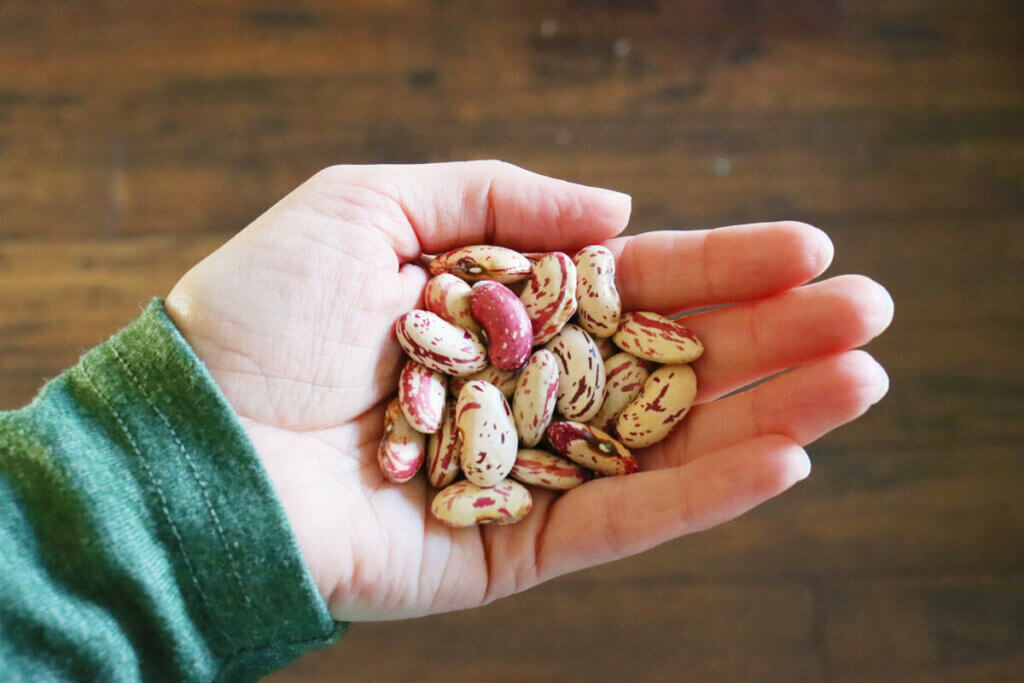
Why I Only Choose Heirloom Seeds
When you go to the store to purchase seeds or order seeds online you only have heirloom or hybrid seeds available to you.
Now, there is nothing wrong with hybrid seeds. If you have no interest in heirloom varieties, or seed saving and want to grow hybrid seeds, that's just fine. I don't want people to feel ashamed because they're using hybrid seed.
Personally, we like to save our seeds and store them for the next year or share with family and friends. I don't always save seed every year, but I do a complete heirloom garden because I want to make sure that I'm supporting heirloom seeds (and companies that sell them) because there are varieties that have almost been completely wiped out and lost in a short period of time; less than a hundred years since we've had hybrid seeds available to us.
I also believe that heirloom varieties have better flavor and there are a whole lot more varieties. I get super excited about all the stories and the different varieties, colors and unique things you'll never see on the grocery store shelf. You just won't see the many different options with a hybrid that you do with all the different heirloom varieties.
Now you can see why heirloom seeds are my favorite. I'm very biased towards heirloom if you can't tell, but I'm being upfront and center about it.
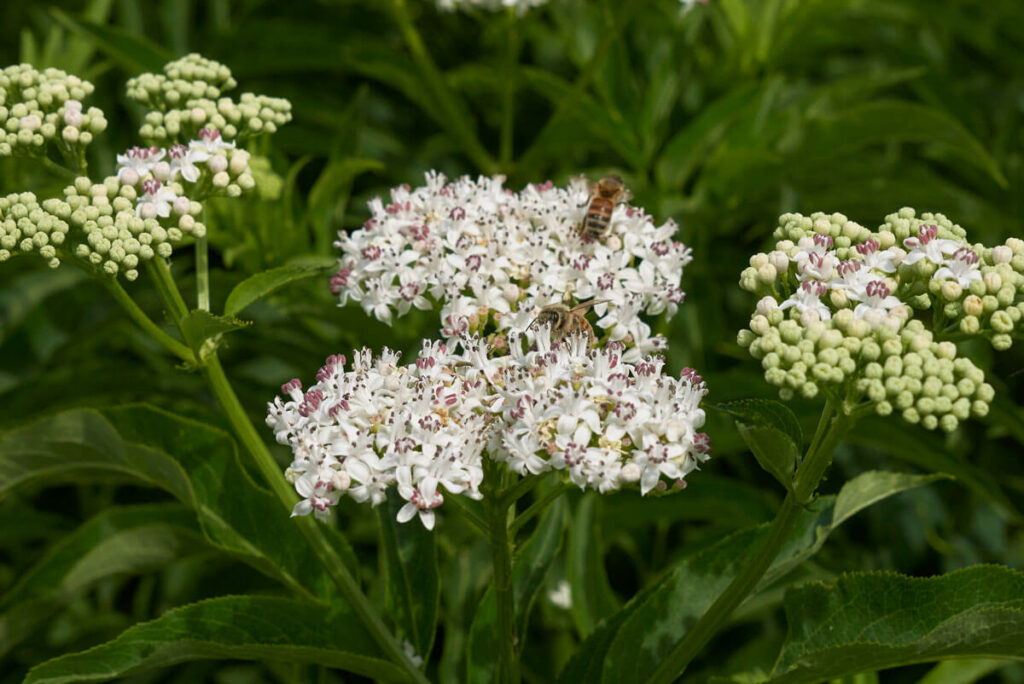
How GMO Effects Pollination
The reason I bring this up is because of the way that crops pollinate. Especially when you have big agriculture, which is planting these GMO crops in huge fields. Corn, especially in the right conditions, can cross-pollinate up to two miles. Now that means that the conditions are just right…the land is flat, the wind is just right.
There's more that comes into play but it can be up to two miles that it can cross-pollinate. So when there are large fields of GMO corn it's going to cross-pollinate with whatever corn is around. It doesn't discern which field is GMO and which one isn't.
This happens with the other crops like summer squash as well, since they cross-pollinate with all kinds of different summer squash varieties.
So, as the years have gone by, we've had more genetically modified crops in our large agriculture making its way into our backyard gardens and seeds. You're going to find cross-contamination within some of those crops, even though the original seeds/plants were not GMO when purchased or seed saved.
What is the Safe Seed Pledge?
The Safe Seed Pledge is a voluntary pledge made by seed companies not to buy, produce or sell GMO seeds. If a seed company has signed the Safe Seed Pledge, it's a good bet they're a safe company to buy from.
The Safe Seed Pledge reads:
Agriculture and seeds provide the basis upon which our lives depend. We must protect this foundation as a safe and genetically stable source for future generations. For the benefit of all farmers, gardeners and consumers who want an alternative, we pledge that we do not knowingly buy or sell genetically engineered seeds or plants. The mechanical transfer of genetic material outside of natural reproductive methods and between genera, families or kingdoms, poses great biological risks as well as economic, political and cultural threats. We feel that genetically engineered varieties have been insufficiently tested prior to public release. More research and testing is necessary to futher assess the potential risks of genetically engineered seeds.
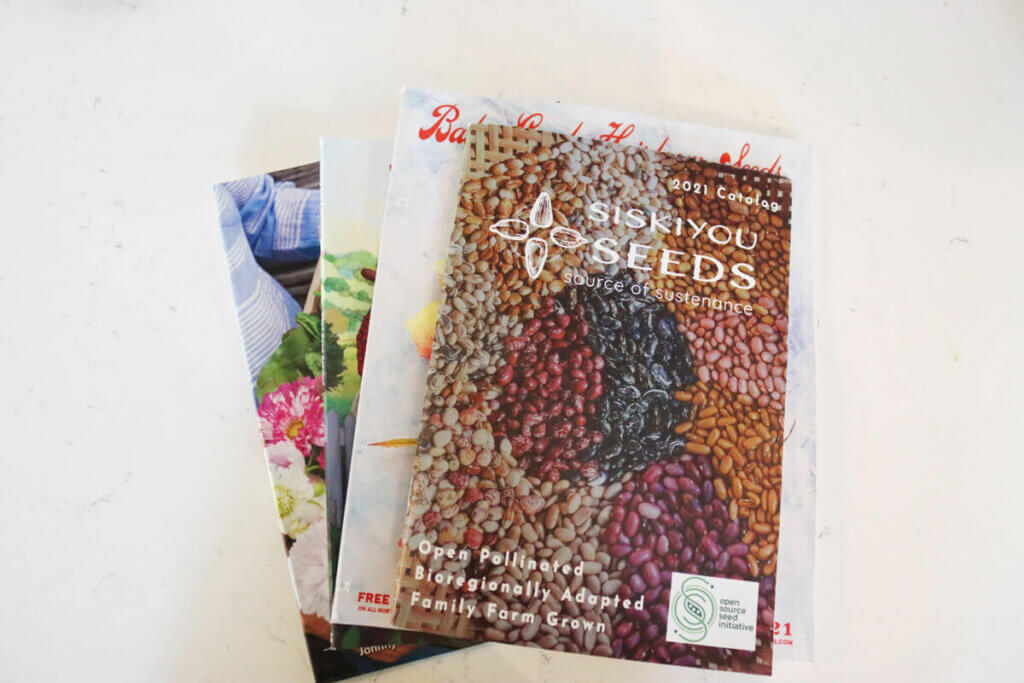
Where To Buy Heirloom Seeds
Obviously, I'm an heirloom seed girl, but where do we get our heirloom seeds? These are the BEST places to buy heirloom seeds, in my humble opinion.
Baker Creek
If you're not familiar with Baker Creek Heirloom Seeds (or “rare seeds”), they're like the showcase of heirloom seeds as they have one of the largest selections with over 1,800 different varieties of vegetables, flowers, and herbs (woah!).
At the time of this updated post, they had actually taken their website offline due to backorders they are trying to fulfill. Do take note that many seed companies are extremely overloaded and on short supply due to the pandemic!
Baker Creek has done a great job of collecting amazing varieties from all over the world and educating people on the history of each seed. In fact, they're selling many Asian and European seed varieties that date back to the 19th century, plus heirloom seeds from over 75 other countries!
They are family-owned and have a beautiful farm that you can actually visit, see them in production, and buy seeds, all in one trip. They also have a really great heirloom seeds catalog done in a magazine type style.
You can order online at their easy-to-use website, but I love perusing their catalog to find new crops that I just have to try. They sucker me in! Why yes, I do want that beautiful purple atomic tomato plant this year. And I love the stories that they include on where the different varieties are from, the history, or where they were rediscovered.
Seeds Savers Exchange
Seed Savers Exchange is a great resource to order from online. They have a seed vault where they keep seeds so that we don't lose some of these precious and really rare varieties. Not only do they sell seeds but they do a really good job on education on seed saving and heirloom seeds.
They're a non-profit organization and they focus on preserving seed varieties that came with families when they immigrated to North America (as well as some traditional varieties grown by the Amish, Mennonites, and American Indians).
Seeds for Generations
Another option is Seeds for Generations which is a family business offering heirloom seeds. I have gotten to know Jason and his family pretty well. Jason, his wife, and his kids run the business together. And how sweet is this? He pays his kids for their help with packing the orders. So your order is packed by the kids, who get paid per envelope.
This family endeavor is teaching the kids entrepreneurial and business skills. I really like to support small family-run operations and Seeds for Generations is a great company to support in that regard. I've gotten quite a few herb seeds from them. They also offer some good resources for planning on their website as well.
Those are the main ones that I've personally ordered from and have experience with. There are a lot of amazing heirloom seed companies out there that are passionate about and love heirloom seeds. These companies don't want to see these seeds disappear and are helping to preserve that part of history while providing the seeds and educating people.
Siskiyou Seeds
I'm in love with this company. They offer all non-GMO, open-pollinated (heirloom), family grown seeds from Oregon. They have a fabulous medicinal flowering herbs section like none other I've ever seen. I ordered a lot from them this year.
For those in a cooler northern climate, they have some varieties of heirloom vegetables I haven't found in other places that will grow well in our shorter and cool climates.
Johnny's Seeds
Johnny's seeds is an original signer of the Safe Seed Pledge for all non-GMO seeds, they do carry some hybrids as well as organic heirloom seeds.
Johnny's is an employee-owned seed company which sells more than 1,200 varieties of hybrid, open-pollinated and heirloom seeds (including vegetables, flowers, and medicinal and culinary herbs).
If you're looking for more than seeds, Johnny's would be a great place for a “one-stop shop” because they also offer many great soil amendments, organic pest controls (although I prefer to keep pests out of the garden a more natural way), and even gardening tools, equipment and accessories.
Botanical Interests
Botanical interests is a signed member of the Safe Seed pledge for all non-GMO seeds, they also carry 238 organic, 349 heirloom, and 29 native varieties of vegetables and flowers.
You can check out their collections of seeds here as well as other garden products (use coupon code MelissaKNorris5 for 5% off your order)
References:
- [1] Genetic Material from bacteria source on GMOs
- [2] 90% of corn is GMO source
The Family Garden Plan
If you are looking at growing more of your own food this year, you definitely want to check out the bonuses that you get when you order The Family Garden Plan.
Order my book today The Family Garden Plan to take advantage of all the bonuses! In this book, you’ll learn how to grow a year’s worth of food for your family! Increase your harvest and maximize the space you have using organic and natural methods to raise a year’s worth of the fruits and vegetables your family enjoys with Melissa’s step-by-step plans and charts.
If you’ve already ordered the book (thank you so much!) claim the bonuses by clicking here and then click the “Get My Bonus Now” button.
Simply fill in the short form with your name, email, and receipt number. I’ll then send you the bonuses, both the Crop Rotation and Companion Planting videos to visually walk you through how to do it in your own garden. You’ll also receive my Seed Saving 101 Video and e-book Package as well as the Organic Soil Amendment Guide.
This guide alone is so in-depth and walks you through how to identify when your soil might be low in certain nutrients, what your plants will exhibit, etc. This is especially helpful if you’ve not done a soil test but you’re experiencing issues stemming from poor soil nutrition.
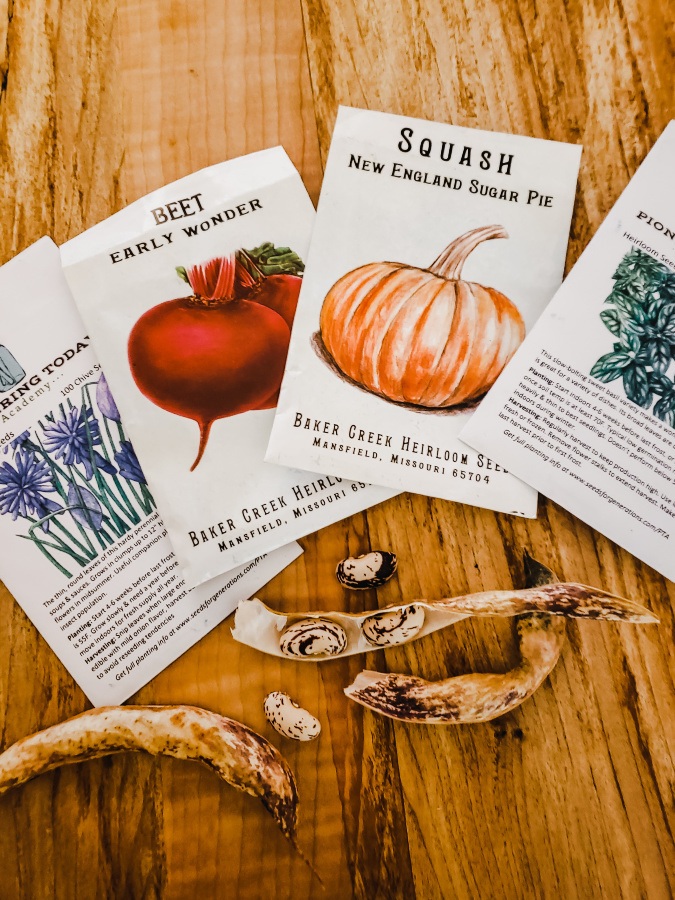
Related Articles
- Intro to Heirloom Seeds
- 5 Reasons You Need Heirloom Seeds
- List of Heirloom Varieties to Grow in the Garden This Year
- Heirloom Flowers for Natural Weed Control in the Garden
- 10 Unique Heirloom Vegetables to Grow
- How to Save and Store Your Heirloom Garden Seed
- Seed Packet Information – How to Read Seed Packets for Gardening Success
- Seed Saving – How to Save Garden Seed
